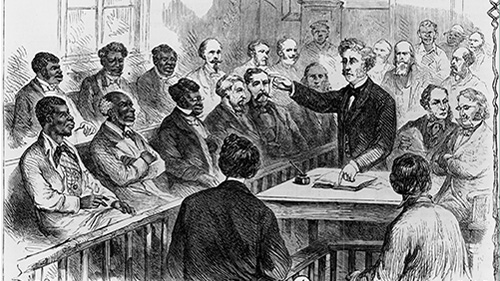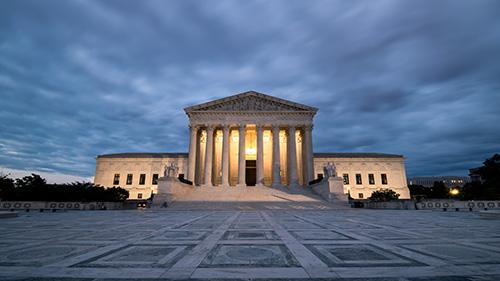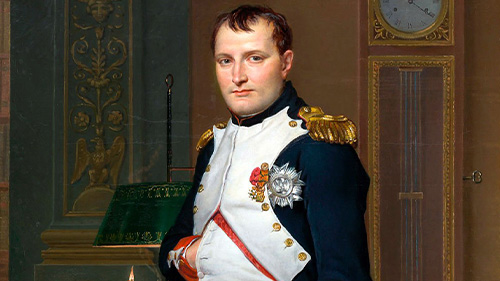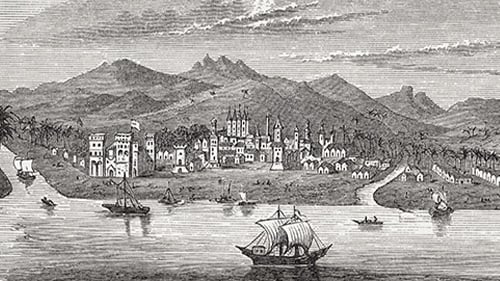AP US History Exam Review with focus on Historical Reasoning Processes
From a practical point of view, argumentation is at the heart of the free response section of the AP exam. This can be particularly difficult with...
AP & Honors Mathematics
Explore Wiley titles to support both AP and Honors mathematics instruction.
Literacy Skills & Intensive Reading
Connections: Reading – Grades 6–12
Empower student success with a proven intensive reading program that develops strong reading skills in striving readers.
Drama, Speech & Debate
Basic Drama Projects 10th Edition
Build students’ confidence and competence with comprehensive, project-based theatre instruction.
Literature
Connections: Literature
Support learners as they study dynamic, relevant texts and bring the richness of diverse voices to students through literature.
Literature & Thought
Develop critical thinking, reading, and writing across literacy themes, genres, historical eras, and current events.
Language Arts
Vocabu-Lit® – Grades 6–12
Help students build word power using high-quality contemporary and classic literature, nonfiction, essays, and more.
Connections: Writing & Language
Help students develop grammar, usage, mechanics, vocabulary, spelling, and writing and editing skills.
Reading/English Language Arts
Measuring Up to the English Language Arts Standards
Incorporate standards-driven teaching strategies to complement your ELA curriculum.
English Language Learners
Measuring Up for English Language Learners
Incorporate research-based best practices for ELLs with an approach that includes a focus on language acquisition strategies.
Mathematics
Measuring Up to the Mathematics Standards
Incorporate standards-driven teaching strategies to complement your mathematics curriculum.
Foundations
Measuring Up Foundations
Help students master foundational math skills that are critical for students to find academic success.
Science
Measuring Up to the Next Generation Science Standards
Give students comprehensive NGSS coverage while targeting instruction and providing rigorous standards practice.
Assessment
Measuring Up Live
Deliver innovative assessment and practice technology designed to offer data-driven instructional support.
For a better website experience, please confirm you are in:
1 min read
Patrick Sprinkle Dec 5, 2023 11:28:28 AM

Teaching historiography in Advanced Placement United States History is essential for developing critical thinking skills and strengthening analytical abilities without losing coverage time. By focusing on historiography, educators can curate experiences that will help students to understand multiple perspectives, be mindful of bias, and engage with primary sources. This preparation empowers students to actively shape their historical understanding and lays a strong foundation for higher education. Ultimately, historiography equips students with essential skills that extend beyond history, fostering critical thinkers with cultural awareness and an appreciation for the complexities of human experiences throughout time.
The Reconstruction Era (1863–1877) in United States History, spanning from Lincoln's first Reconstruction to the Compromise of 1877, was a politically and socially contentious period. Interestingly, the way Reconstruction has been remembered and taught in U.S. schools has been influenced by the divisive and evolving attitudes about the era, even long after its official conclusion. The teaching of the historiography of Reconstruction is a natural place to promote the intersection of skills and content.
One strategy that I have found to be very successful is the use of textbooks. Using textbooks to teach historiography is valuable as they offer clear explanations of historical concepts, present diverse perspectives and examples of historiographical debates, and cover a wide range of approaches. Overall, textbooks support teachers in facilitating discussions and activities related to historiography, enabling students to critically analyze historical interpretations.
When teaching Reconstruction, I simplify the schools of thought on Reconstruction into two large camps: the Dunning School, which insisted that Reconstruction aimed to reunite the country as soon as possible while maintaining a racial hierarchy in the United States, and the Revisionist camp which emphasized the temporary political and social gains made by Blacks during Reconstruction. This clear dichotomy allows students to better understand not only how and why different historical interpretations occur, but also the key content necessary for the Advanced Placement exam.
When implementing this lesson, I chose two textbooks, one from the Dunning school and one from the Revisionist Camp. The Dunning School text chosen was “A School History of the United States” written by Nancy Mace (1904). The emphasis on Reconstruction, pages 388–394, was organized in small segments that could be used in a jigsaw activity. This stands in contrast to a modern textbook, which includes the beliefs and attitudes of the Revisionist camp.
After students complete a standard document analysis (see below), I conclude with the following questions:

From a practical point of view, argumentation is at the heart of the free response section of the AP exam. This can be particularly difficult with...

In a 2004 Gallup survey, history and social studies ranked as the least popular subject for teenagers. Why is this? Many adults recount history class...

One of the personal stories I frequently share with my students is how I nearly became a lawyer. I majored in political science and philosophy in...

One of the best days I’ve ever had in the classroom is when we look at art.

One of the personal stories I frequently share with my students is how I nearly became a lawyer. I majored in political science and philosophy in...

Unlock the power of historical thinking and writing as you elevate complexity and engagement in AP History classrooms. Presented by experienced AP...

This interactive webinar focuses on scaffolded approaches to the finishing touches necessary for higher-level success on the LEQ and DBQ portions of...

Join AP experts Brandon Abdon, Colin Baker, and Bob Topping to discover scaffolded approaches to teaching the APUSH, AP Euro, and AP World History...

From a practical point of view, argumentation is at the heart of the free response section of the AP exam. This can be particularly difficult with...

In celebration of Women's History Month, explore this lesson with your students that gives them the opportunity to practice an important part of the...

This lesson aims to show teachers and students how to develop a historical argument using Document-Based AP History (DBQ) documents. We will use...

One of the greatest rewards of teaching history is when students can show that they can make effective arguments supported by historical evidence....
